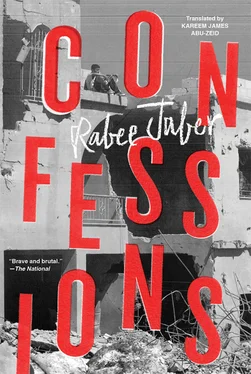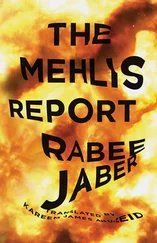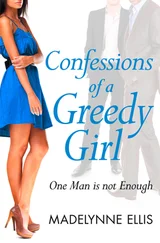My father didn’t go alone, Ilya stayed with him, and some of our neighbors went with him too, including Doctor Philippe Broadwell — who would later treat me for bullet wounds. Ilya used to love that doctor because he looked after my mother, and had it not been for Broadwell’s medicines, my mother would have died long ago. On several occasions they caught her just as she was trying to jump off the roof. One night, while they were napping, she escaped from the house. They found her smashing her head against the wall by the ful and hummus restaurant at the corner. The road stretched out in front of the restaurant. The kids used to play soccer around there, and sometimes they’d kick the ball in the air and it would land in the fenced-off garden in front of the mayor of Achrafieh’s house. The mayor’s wife would scream while my little brother laughed. She told my mother he was a devil. Everyone in the neighborhood used to call him “the little devil.” They told my father that. And they told my grandfather about it too, whenever he came to our house. They called him “the little devil.” He used to break windows with that soccer ball, but they all loved him. Light-skinned, blond, quick, and full of laughter. They kidnapped him and killed him, his clothes torn up and his body bloodied, on the road that climbed from the Museum to the Hôtel-Dieu. He wasn’t alone. There were seven young children, seven tiny stiff corpses laid out in the back of a van.
Ilya saw my father standing in the long white corridor with the small body in his arms. He was walking unevenly. His shoulder kept bumping into the wall. Ilya said my father wasn’t crying. He said he couldn’t forget the movement of my father’s body: how he leaned on one side and kept crashing into the wall, and how he’d immediately straighten up again — like a crumbling pillar: toppling, then returning to its place. Ilya said my father had no face at that moment, that he looked at him and didn’t see a face. “He wasn’t crying.” Ilya repeated those words several times as we sat in the waiting room at the Rizq Hospital. We were waiting for my father to come out of the operating room, and Ilya kept talking and talking and talking. And all the while I thought I was in Hell.
Ilya said my father held the small corpse in his arms as he left the Hôtel-Dieu. People from the hospital and some of our neighbors tried to stop him, but no one could hold him back. He took my little brother’s corpse and walked to the apartment of one of our relatives from the Estefan family. That apartment was near the Hôtel-Dieu, and it was empty. My father had the key with him — the owners were in France — and he’d been going to the apartment every two or three days to keep out thieves and squatters who’d been displaced by the war.
“He had no face,” Ilya said — he only saw my father’s face when he turned around and told Ilya to go home, to return to the house ahead of him. The building guard opened the gate for my father. The rattling of the many keys resounded through the empty house, and the screams of neighbors rose up, then suddenly died off. Where had those voices come from? Ilya only saw my father’s face when he spoke: he told him to go to the house, there was a small container of medicine on the dresser by the bed, a green container, and put three pills in a cup of water: “Not one pill, and not two. Put three pills in the cup for your mother and don’t tell her what’s happened, I won’t be long.”
Ilya wouldn’t go. Ibn Broadwell (the doctor) spoke with my father and asked him what he wanted, but Ilya didn’t hear what the doctor said, nor did he hear what my father replied. The doctor left, and so did the neighbors, but Ilya stayed with my father in the Estefan family’s apartment.
Ilya stayed with my father and the corpse. Inside the house, he saw things and didn’t see them. In the Rizq Hospital, after all those years, Ilya remembered everything as if he were remembering a dream. It wasn’t a dream. As he spoke, I felt the breath, the soul, leave my chest and not return. I saw Ilya there with my father and our dead brother, seeing things and not seeing them, in an empty apartment in a half-deserted building. I saw the building with its shattered windows, which looked out over the demarcation line, through to the other side and its snipers. I saw the nylon stretched over the window frames. I saw the small body with its torn clothes on the dining room table. I saw Ilya. He was alone. He was with my father, but he was alone. My father said something, he spoke as if the words had come from another world, from another life: he wanted to wash my brother, he wanted to wash the blood from the boy before his mother saw him. Ilya said the blood had dried in his hair, and they washed him with soap and warm water. The guard came to help too. And the guard’s wife. But my father wouldn’t let anyone touch my brother’s body. He washed the boy himself with the warm water. Ilya said the body was like wood, like a piece of wood, like a statue — not a boy. He was nine years old, just over four feet tall, and weighed fifty-three pounds.
After the funeral, my mother was bedridden. I don’t know anything from that time, these are all Ilya’s memories. My mother stayed in bed, drugged, and my father began to disappear from the house, and when he returned carrying a weapon the neighbors stayed out of his way. He smelled different. And his face looked different. His beard grew, as did the hair on his head. Around that time, rumors began to spread about massacres at Tel al-Zaatar and Karantina.
Wait a second: don’t think I’m going to tell you a story you’ve already heard before. All of us have lived in this country, all of us have lived through horrible stories, or at least heard horrible stories. What I’m about to tell you is unlike anything you’ve ever known. I know that each person thinks their life is unique and bears no resemblance to any other. People are like that, I know, and I know every life is precious, and that no two lives are the same — I know all that, but let me tell you: My life really is different. I won’t tell you stories you’ve heard before. Eighteen years have gone by since the end of the Civil War, and now we’re on the brink of a new war, soon we’ll be killing each other again. The papers are saying it, the people are saying it, but I don’t think they’re right. I don’t believe it because we fought each other for fifteen years, and we need a break. Maybe we’ll start fighting again in forty or fifty years — that’s what Ilya says. “I wouldn’t advise anyone to start a family in this country,” that’s what Ilya says.
I won’t tell you what my father did in Karantina, and I won’t tell you what my brother did after that. My father committed atrocities, my brother too. My brother less than my father, my brother was forced into it, or at least he says he was — but my father never said anything, he never spoke about that time, and when he did finally speak, he only told me one story (the story that concerns me), and never told me any others. He hated talking, my father. Everything I know about Karantina I learned from others. Now, as I tell you all this, I can see the buildings in front of me (before they were torn down), and I can see the willows lining the wet road. There was a chill in the air. They were separating the families, ordering the men to gather beneath the stairs, ordering the women and children to go out into the street. They said they were going to take the men to be inspected, but they sprayed them with bullets instead. I won’t tell you what happened after that. I want to tell you the story that concerns me.
My father didn’t take part in many battles, but he kidnapped and killed I don’t know how many people — sometimes a hundred or even two or three hundred people would disappear in a single day. Right here, in Beirut. “Black Saturday” was one of those days. But there were many others. I told you I spent part of the Two-Year War sick, hovering between life and death. And I told you my first memories are confused, all jumbled together. A long time passed, after the fever and the loss of all that blood, and for a long time I could only move slowly, sluggishly — my body lacked strength. I used to hold onto the table, the sofa, or the edge of the bed as I moved among the rooms of the house, not knowing where I was.
Читать дальше












